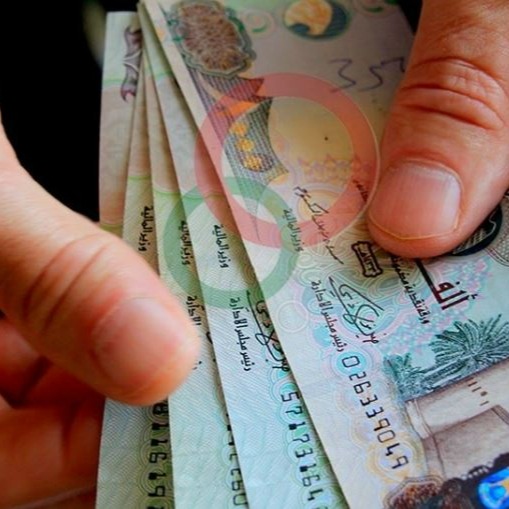Average Cost of Living in Dubai in 2024

Explore the average cost of living in Dubai in 2024, covering housing, utilities, transportation, healthcare, groceries, and schooling for families, singles, and couples, plus a global comparison with the UK and USA.
Dubai is a city of contrasts—luxurious yet accessible. Whether you're a single professional, a couple, or a growing family, knowing the cost of living here is crucial to planning your budget. From renting an apartment to paying for groceries, Dubai’s cost structure can vary significantly based on lifestyle and preferences. So, how much do you need to live comfortably in this vibrant city? Let’s dive in and find out what it costs to live in Dubai in 2024.
What is the Average Cost of Living in Dubai for Families, Singles, and Couples?
Your cost of living in Dubai largely depends on your household size and lifestyle. Here’s a general breakdown to give you an idea:
| Category | Singles | Couples | Families |
| Housing (1 BHK/2 BHK) | AED 4,000 - 7,000 | AED 6,000 - 10,000 | AED 10,000 - 15,000 |
| Groceries | AED 700 - 1,000 | AED 1,200 - 2,000 | AED 2,000 - 3,500 |
| Utilities | AED 500 - 800 | AED 800 - 1,200 | AED 1,200 - 2,000 |
| Transportation | AED 250 - 400 (public) | AED 1,500 - 2,000 (car) | AED 1,800 - 2,500 (car) |
Cost of Housing in Dubai (Rent or Buy)
Dubai offers a variety of housing options, from high-rise apartments in bustling areas to spacious villas in suburban neighborhoods. Rent can vary widely based on location and property type. For those considering a long-term stay, buying a home is also an option.
| Type | Rent (Monthly) | Buy (Price per Sq Ft) |
| 1 BHK Apartment (City) | AED 4,000 - 7,000 | AED 1,100 - 1,500 |
| 2 BHK Apartment (City) | AED 7,000 - 12,000 | AED 1,200 - 1,600 |
| 3 BHK Villa (Suburbs) | AED 10,000 - 18,000 | AED 1,000 - 1,400 |
Prices in neighborhoods like Downtown Dubai, JBR, and Palm Jumeirah are at the higher end, while areas like JVC and Dubai Sports City are more affordable for renters and buyers alike.
Related: Cheap and Affordable Places to Rent in Dubai in 2024
Monthly Cost of Utilities
Utility bills include water, electricity, and cooling (a must in Dubai’s scorching summers). Cooling costs can vary significantly based on your home's size and the season.
| Utility | Monthly Cost |
| Electricity & Water | AED 600 - 1,500 |
| Cooling (AC) | AED 300 - 1,000 |
| Internet | AED 300 - 500 |
In villas, utilities can be higher due to the need for additional cooling and maintenance of larger spaces.

Cost of Transportation in Dubai
Dubai’s public transportation system is efficient, affordable, and well-connected. However, many expats prefer owning a car, which adds fuel, insurance, and maintenance to their monthly expenses.
| Transport Mode | Monthly Cost |
| Public Transport | AED 250 - 400 |
| Car Ownership | AED 1,500 - 3,500 |
If you live outside the city center or travel frequently, owning a car may be more convenient. Just keep in mind that parking fees and tolls like Salik can add to the costs.
Read more: Which Arab Country is Best to Live in?
Cost of Healthcare & Insurance in Dubai
Healthcare in Dubai is of high quality, but private insurance is essential. Most employers provide basic coverage, but families and expats often opt for additional insurance to cover a broader range of medical services.
| Healthcare Type | Annual Cost |
| Basic Health Insurance | AED 3,000 - 5,000 |
| Comprehensive Coverage | AED 8,000 - 12,000 |
Out-of-pocket costs can be expensive without sufficient insurance, so make sure you have a policy that meets your needs.
Annual Fees for Schooling in Dubai
For families, schooling is a major expense. Dubai offers a range of schools, including international curricula, but tuition fees can add up.
| School Type | Annual Fees |
| Nursery | AED 15,000 - 40,000 |
| Primary School | AED 30,000 - 60,000 |
| Secondary School | AED 40,000 - 100,000 |
Private international schools, especially those following the British or American curriculum, tend to charge higher fees.
Related article: Best Schools in Abu Dhabi for a World-Class Education in 2024
Cost of Groceries in Dubai
Grocery prices can fluctuate depending on your choice of supermarkets and whether you opt for imported or local goods. Dubai has a wide range of grocery options, from budget-friendly hypermarkets to high-end organic stores.
| Groceries | Monthly Cost |
| Singles | AED 700 - 1,000 |
| Couples | AED 1,200 - 2,000 |
| Families | AED 2,000 - 3,500 |
Shopping at Carrefour or Lulu Hypermarket can help keep your grocery bill manageable.
Comparing the Average Cost of Living in Dubai, the UK, and the USA
How does Dubai stack up against global cities like London and New York? Here’s a comparison of major living expenses across these three regions:
| City | Housing (Monthly) | Utilities | Groceries |
| Dubai | AED 8,000 - 12,000 | AED 1,500 | AED 2,500 |
| London | AED 10,000 - 18,000 | AED 2,000 | AED 3,000 |
| New York | AED 12,000 - 20,000 | AED 1,800 | AED 3,500 |
In comparison, Dubai offers more affordable utilities and groceries, although housing can be competitive with high-demand areas in London and New York.
For more insights or help finding your perfect home in Dubai, visit Homeland website or Contact Us. If you're exploring investment opportunities, take a look at our latest Off-Plans.
Frequently Asked Questions (FAQ)
Is Dubai affordable for families?
Dubai can be affordable, but expenses like schooling and rent add up quickly. Careful planning and budgeting will help keep costs under control.
What salary do I need to live comfortably in Dubai?
A single person can live comfortably on AED 10,000 to AED 15,000 per month. Couples may need AED 15,000 to AED 25,000, and families should aim for AED 30,000 or more to cover schooling and housing.
Is healthcare expensive in Dubai?
Basic healthcare is relatively affordable with insurance, but comprehensive plans for families can be costly. Always ensure you have sufficient coverage to avoid high out-of-pocket expenses.
Read more:
Get In Touch
Latest Blogs

Property All Risk Insurance Dubai: Comprehensive Protection for Your Property

Will Dubai housing market see an oversupply in 2026?

Is Moon Dubai ever taking off? Founders explain what comes next

Can Indians Buy Property in Dubai ?

